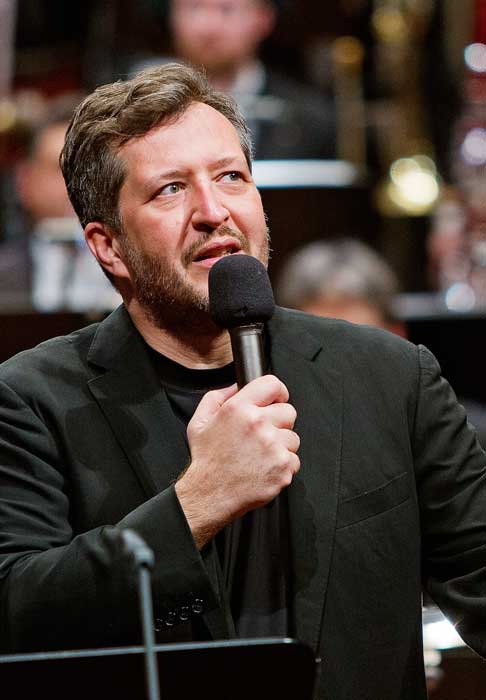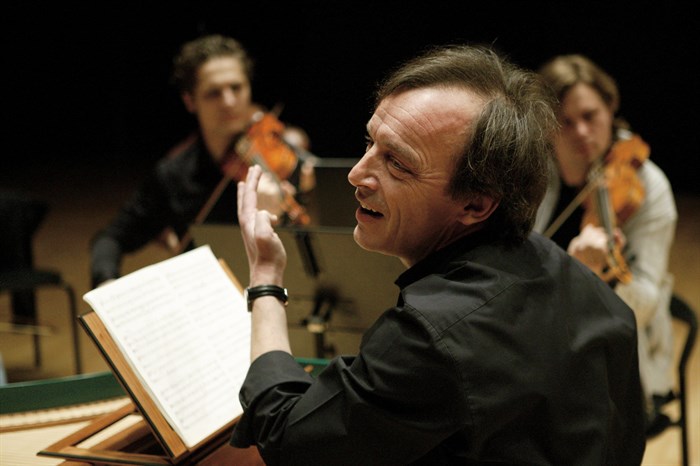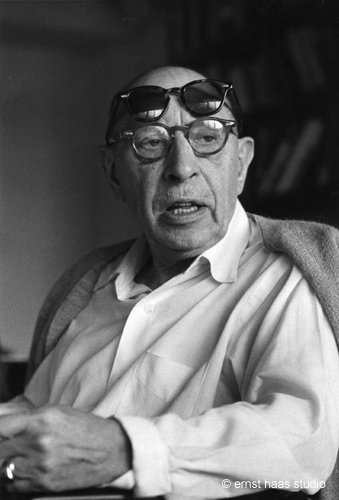léonoe sonning music prize 1973
The American violinist Yehudi Menuhin received the Léonie Sonning Music Prize of 60,000 Danish kroner at a concert on 12 May 1972 at the Tivoli Concert Hall. The first half of the concert and the prize ceremony was broadcast live on the Danish Broadcasting Corporation’s P2 radio channel.
The prize was presented by Børge Friis, the Léonie Sonning Music Foundation’s chairman.
citation
The Léonie Sonning Music Prize of 60,000 Danish kroner is hereby awarded to Yehudi Menuhin, in recognition of his personal efforts and uncompromising striving in the service of live music and humanity. Yehudi Menuhin’s work as a violinist, musical aesthete and educator will stand as an example of the highest artistic and human ideals.
After the presentation, Yehudi Menuhin said some words of his own and thanked Børge Friis for his speech:
‘I was deeply moved by your words and what they expressed about all our hopes and I am very glad that I experienced it in this very civilized, very generous and very charming country. I am also very happy that it is happening after a performance of the Bartók concerto, which is a work that is close to my heart and which has been played by my colleagues and Dr Blomstedt so beautifully. I cannot imagine a more empathetic execution than yours. This is exactly what music can do: embrace you in a work of art, immerse you in another person’s imaginary world. I am also moved that the Sonning Prize is associated with another prize; in other words, that music and peace are, in a way, united. It was once believed that everything depended on this or that religion, and that all actions in the world were determined or governed by belief. In our time, despite the fact that we know about science, we have not yet found a universal morality. Imagine if music could show the way to a united world, then even our daily dealings could be governed by what Bartók and Beethoven wrote and what our colleagues in India are playing. If we can get to the point where everything is determined by what underlies the most beautiful music and art, then we will have found a new universal morality.’
The programme
Shostakovich’s opera Katerina Ismailova (Lady Macbeth from Mtsensk)
Soloists:
Katerina Ismailova: Lone Koppel Winther
Sergei: Peter Lindroos
Boris: Bent Norup
Sinovich: Otte Svendsen
Production staged by Jan Biczyski.
The Royal Danish Orchestra
Conductor: Kazimir Kord, artistic leader of the Krakow opera
Shostakovich and Denmark
Shostakovich’s visit to Denmark to receive the prize was long – almost a month. He arrived as early as 4 May 1973, three weeks before the prize ceremony, to follow daily rehearsals of his opera, which opened ten days later. The same evening, Arve Tellefsen played his Violin Concerto No 1 with the Danish National Symphony Orchestra conducted by János Ferencsik at the Tivoli Concert Hall.
On 27 May, the day after the prize concert, the National Association for the Cooperation of Denmark and the Soviet Union had arranged for a screening of the film version of Katerina Ismailova at the Alexander Theater. At the event, Shostakovich spoke briefly about the film adaptation, and was presented with gifts by Danish admirers. Two days later, there was a chamber concert at the Royal Danish Academy of Music, which included Shostakovich’s Piano Quintet and also his Cello Sonata played by Erling Bløndal Bengtsson and Anker Blyme.
The next event in the series was a concert with the Danish National Symphony Orchestra on 1 June at the Tivoli Concert Hall, where Shostakovich’s son Maxim conducted the first Danish performance of the composer’s new Symphony No 15 and the suite from the ballet The Golden Age and the Piano Concerto No 1 with Mogens Dalsgaard as soloist. On 3 June, Galina Werschenska and the Tivoli Symphony Orchestra, conducted by Eifred Eckart-Hansen, played Shostakovich’s Piano Concerto No 2 in the Tivoli Concert Hall. Werschenska, who had lived in Denmark since 1930, had been a fellow student of Shostakovich’s at the Leningrad Conservatory.A special event was organized by the Danish Broadcasting Corporation at short notice. In it, Shostakovich met an assembly of Danish composers, listened to recordings of their music and gave immediate feedback. The works were by Vagn Holmboe (Symphony No 7), Aksel Borup-Jørgensen (Homecoming), Hans Abrahamsen (EEC Sats) and Ray Pitts (Odsherred Suite). Other Danish composers including Ole Schmidt, Leif Kayser and Sven Erik Tarp had the opportunity to ask questions of Shostakovich, and the exchanges revolved mainly around Shostakovich’s view on Danish and Nordic music.
An edited recording of the meeting was broadcast on the Danish Broadcasting Corporation’s P1 radio channel on 14 August 1973. As on other occasions during the visit to Denmark, Shostakovich was followed by his Danish interpreter, associate professor Erik Stahl, music critic at the communist newspaper Land og Folk.
The daily press wrote, among other things:
With his willingness to spin great melodic lines of often gripping simplicity, Shostakovich creates moments of sublime beauty, and the mastery he possesses in counterpoint is that which can only be found in the great composers.
(Nils Schørring, Berlingske Tidende, 16 May 1973)
A short-limbed, sand-coloured man with a dense hairline and a pair of heavy myopic glasses has been walking around among us for weeks, a little hesitantly and supporting his wife – silently observant, smile-less, buttoned-up like a Russian military attaché. It is Dmitry Shostakovich, the 67-year-old Soviet composer, who tonight during the performance of his opera Katerina Ismailova will be awarded the Léonie Sonning Music Prize. After Stravinsky, Britten and Lutosławski, he is the fourth composer to receive the sum of 60,000 Danish kroner. There will be no press conferences or interview. He cannot stand it. Russian seems to be his only language, but even his loyal Danish interpreter, associate professor Erik Stahl, barely has more words to describe him after many hours together. Life has taught Shostakovich to me a man who doesn’t talk about himself.
(Robert Naur, Politiken, 26 May 1973)





